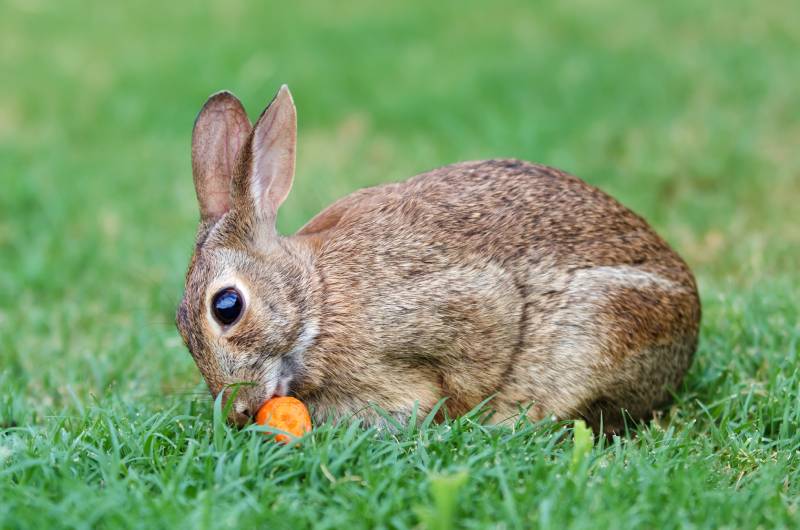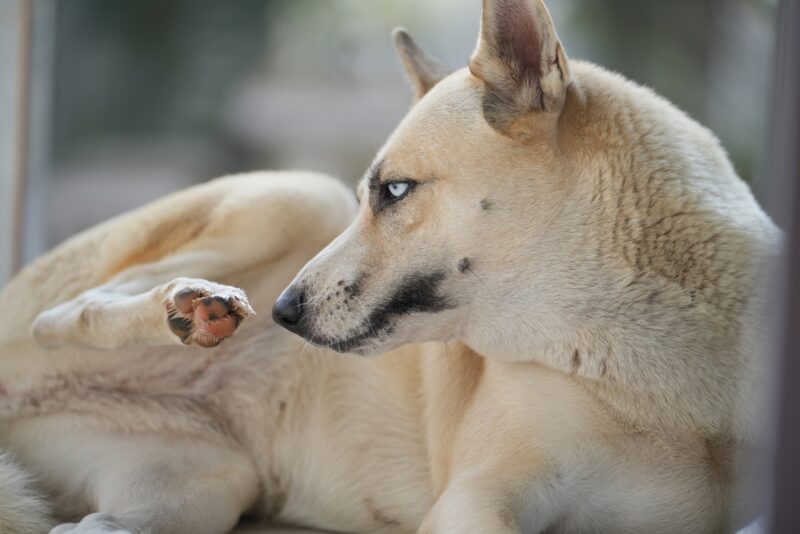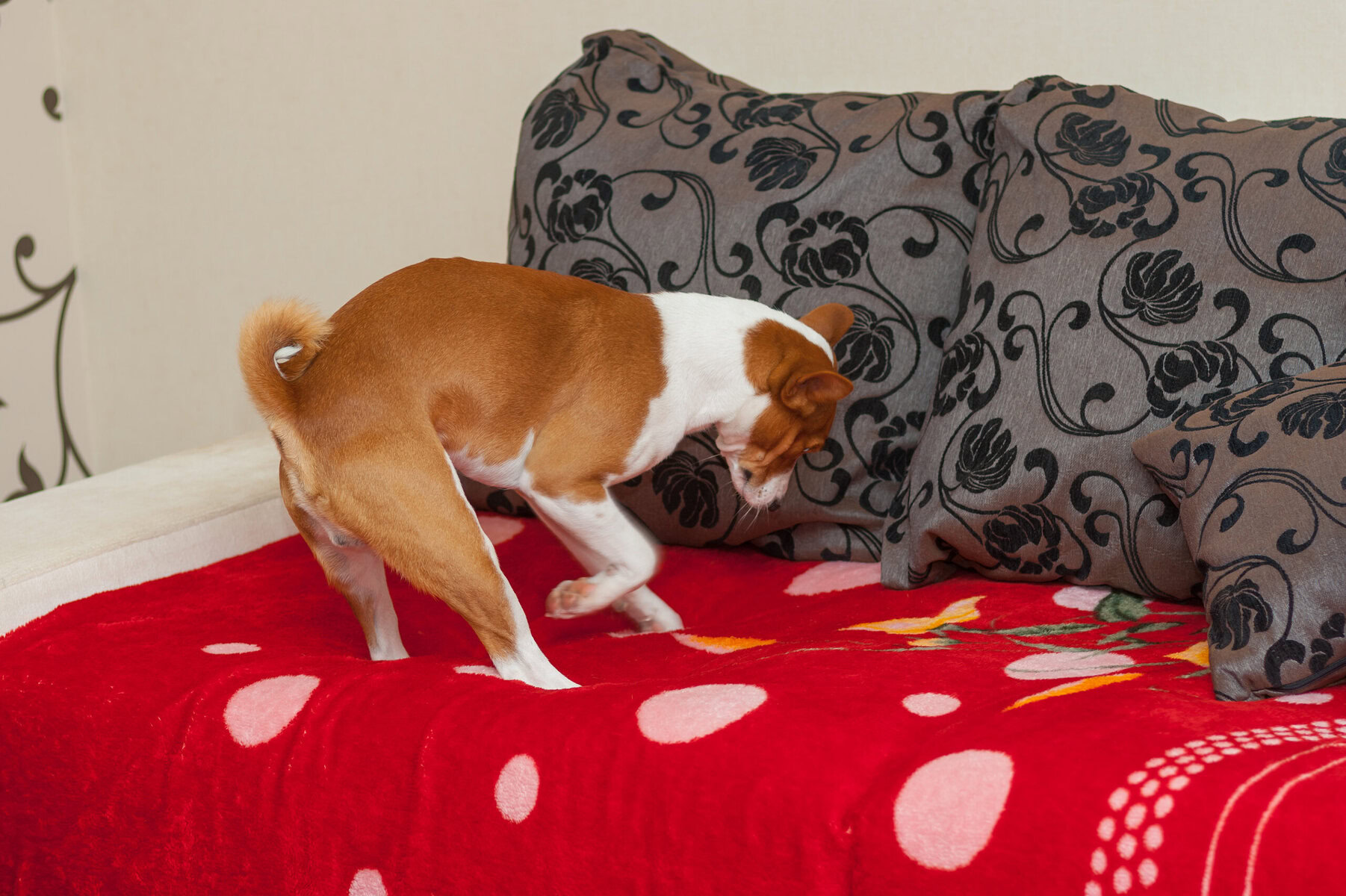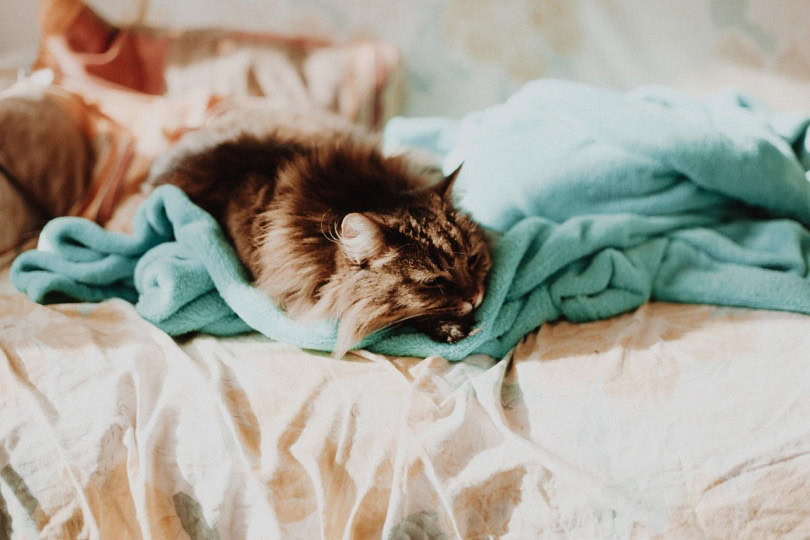VET APPROVED

The information is current and up-to-date in accordance with the latest veterinarian research.
Learn more »Click to Skip Ahead
Rabbits are relatively predictable animals, and if you’ve ever seen a rabbit before in your life, then you’ve almost certainly seen a rabbit eating. It seems like every time you see a rabbit, they’re eating. Surely rabbits don’t eat all the time, right? At some point, they have to get full, but will rabbits actually stop eating when they’re full? As a general answer, yes. Let’s take a look at the details behind this answer.

Will Rabbits Stop Eating When Full?
Yes, rabbits will stop eating when they feel satiated, or when they’ve had enough to eat. They will also stop eating when they’re ready to rest. It’s important to know, though, that rabbits eat multiple meals throughout the day.
If your rabbit stops eating suddenly, this can actually be very concerning for their health and will require urgent veterinary attention. Your rabbit should always have unlimited access to fresh hay, like meadow or Timothy hay.
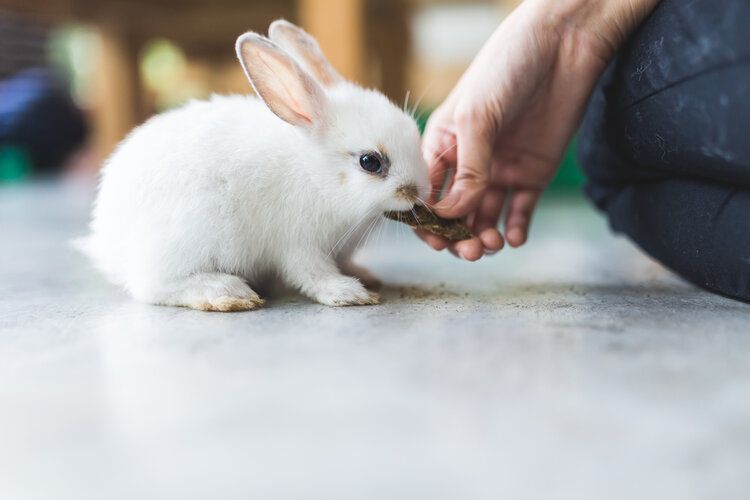
Can Rabbits Overeat?
Yes, rabbits can overeat. If your rabbit overeats, they can develop multiple issues, such as digestive problems, abdominal pain, bloat, and gut stasis in the short term, and obesity and all of the conditions associated with it long term. While your rabbit should have unlimited access to hay, all other foods should be given in moderation. Speak to your veterinarian about appropriate nutrition for your rabbit.
Pellets are the primary reason that some rabbits overeat. These highly palatable pellets can become a preference for your rabbit over all other foods, but it’s important to properly measure the correct amount of pellets every day and not overfeed them. Pellets should make up as much as 5% of their total daily food intake.
Your rabbit can also have a variety of fresh veg, including pumpkin, carrot, parsley, romaine lettuce, broccoli, chard, asparagus, basil, and celery leaves. While leafy greens can be fed daily, most of the other fresh foods should be fed as treats and not as a primary component of your rabbit’s diet. Combined veg and fruit should make up no more than 10-15% of their daily food intake.

The Dangers of Not Eating Enough
While your rabbit is likely to naturally eat enough without overeating, some rabbits may undereat. If your rabbit isn’t eating enough because of an underlying health problem, they can develop gastrointestinal stasis.
With stasis, the gastrointestinal tract stops functioning properly. Stasis can rapidly become a deadly condition for your rabbit, so ensuring they are eating enough is extremely important.
Stasis can be caused by multiple things, from inadequate diet with a lack of fiber and an excess of carbs, as well as due to dental issues and pain. Diet-related gut stasis can occur if your rabbit doesn’t have free access to hay at all times or if they are given too many pellets. Without unlimited hay access, your rabbit is at a very high risk of developing stasis at some point. Your rabbit also needs to always have access to clean water.
If your rabbit doesn’t naturally drink enough water, you may need to discuss adding more high-moisture foods to their regular diet with your vet.
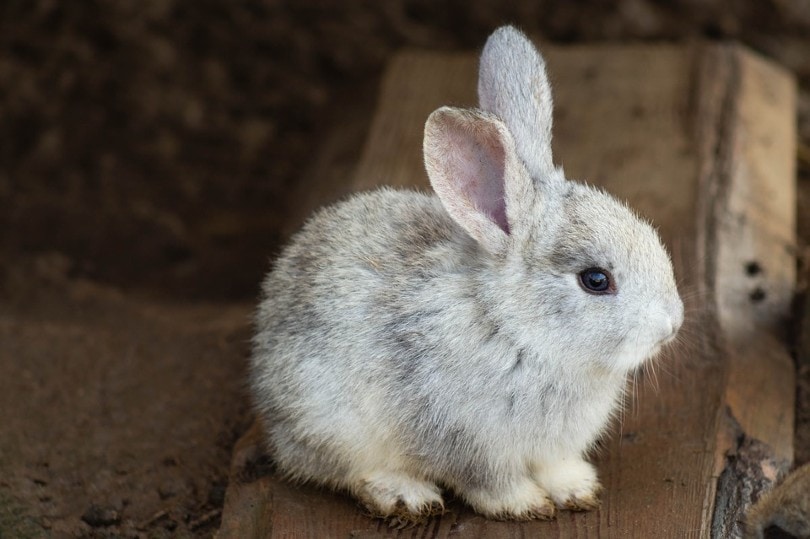

Conclusion
Rabbits will typically stop eating when they are satiated or ready to rest, but some rabbits will overeat, especially if fed too many pellets or treats. Overeating can lead to digestive issues, bloat, or gut stasis, and long-term obesity, which can lead to a variety of health problems.
If your rabbit undereats, though, this can also be very concerning. Stasis will occur if your rabbit isn’t eating or isn’t receiving enough fiber, and stasis is an emergency situation that always requires veterinary intervention to resolve.
- Will Rabbits Stop Eating When Full? — Rabbit Care Tips
- Rabbit diet – Rabbit welfare – Tips, advice, health – RSPCA – rspca.org.uk
- Reduced Appetite in a Rabbit – PDSA
- Your Guide To Rabbit Nutrition
- Pet Rabbits | Gastrointestinal Stasis (animalhouseofchicago.com)
- Gastrointestinal stasis in rabbits | VCA Hospitals
Featured Image Credit: Leena Robinson, Shutterstock
